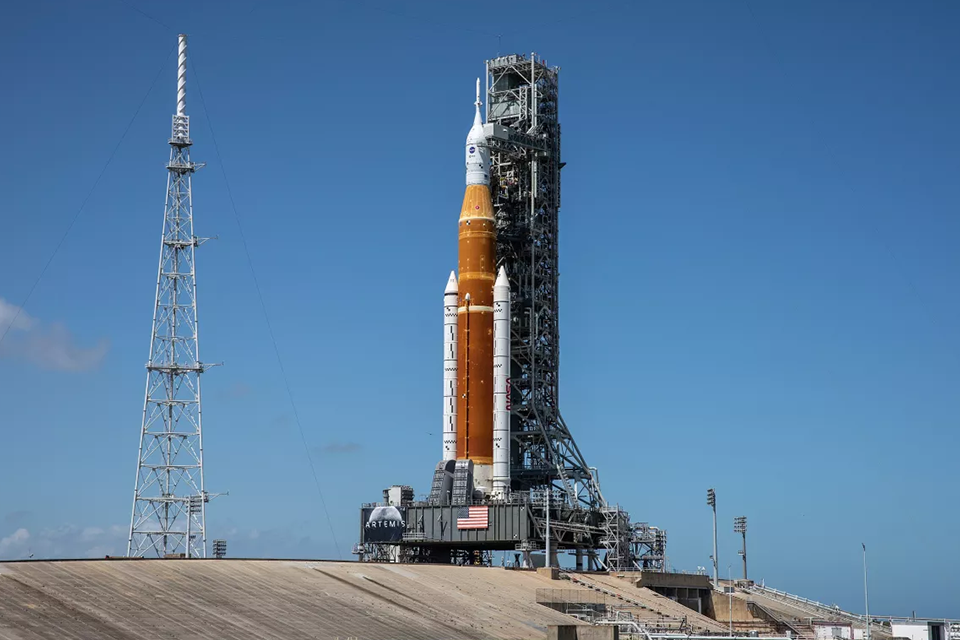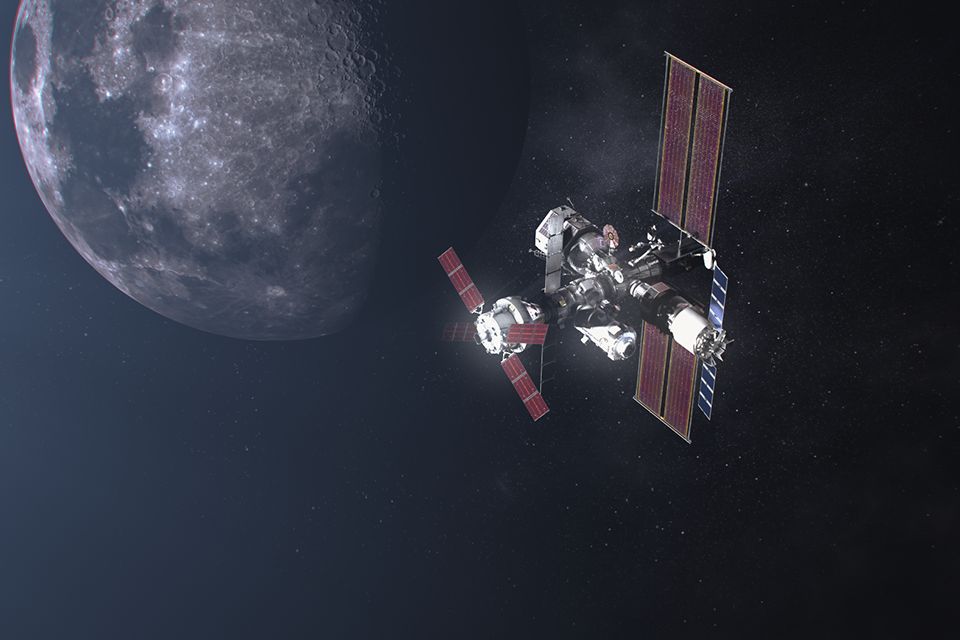The Artemis programme
NASA's Artemis programme marks a return of humans to the Moon. The aim is to land the first woman and the first person of colour on the Moon by 2025.
Commercial and international partners will collaborate to achieve a sustainable presence on the lunar surface as a steppingstone to the first human mission to Mars.
December 2022 will mark 50 years since Apollo 17 - the last human landing on the Moon. The Artemis programme marks the next chapter of human space exploration.
Artemis I

The Artemis I mission on the launchpad in Florida. NASA/Kim Shiflett
The Artemis I mission sees the first launch of the new Space Launch System (SLS) rocket, which will take the NASA-built Orion capsule, with the European-built service module that includes Orion's engines, towards the Moon.
The first in a series of increasingly complex missions, Artemis I is the first uncrewed flight before NASA sends the first crewed Artemis mission into space in 2024. The agency expects the first Artemis astronauts to land on the lunar surface in 2025.
Artemis I is set to launch from Florida on 29 August 2022, at around 1:30pm BST.
UK involvement in Artemis
Renewed interest in the Moon - from partners all around the world - presents a great opportunity for the UK.
The lunar economy is set to take off in the next decade. A recent PwC study estimated it to have a value of $170 billion (£144 billion) by 2040. The UK is playing its part in this, with forward-thinking, innovative companies to capitalise on this opportunity.
We will be able to track the Artemis I mission in the UK from Goonhilly Earth Station in Cornwall. This is a major step for our capacity to offer commercial lunar communications from the UK.
The UK is making important contributions to the Lunar Gateway - a space station currently in development that will orbit the Moon - as part of the Artemis programme. Thales Alenia Space UK will provide the refuelling module on the Gateway, which will support future lunar missions.

Artist's impression of Lunar Gateway in orbit around Moon. Credit: NASA
Surrey Satellite Technology Ltd's Lunar Pathfinder spacecraft will offer communications and navigation services on the lunar surface from 2025. UK companies are also involved in some of NASA's Commercial Lunar Payload Service (CLPS) missions that will see lunar payloads delivered to the surface of the Moon by commercially operated companies.
In 2020, the UK signed the Artemis Accords with NASA and partner space agencies around the world. The US worked with the UK, along with other spacefaring nations including Japan, Australia, Canada, Italy and the UAE, to develop the Artemis Accords: a set of principles to ensure a shared understanding of safe operations, use of space resources, minimising space debris and sharing scientific data.
Other UK lunar activity:
- Imperial College London is providing a magnetometer for the Lunar Gateway, as part of the European Radiation Sensor Array.
- Oxfordshire-based company MDA is providing lunar landing sensors for the first commercial lunar lander, from US company Intuitive Machines.
- The Open University is developing its PROSPECT Ion Trap Mass Spectrometer (PITMS) instrument, which will be part of US company Astrobotic's upcoming 2022 lunar lander, to study the very thin atmosphere near the surface of the Moon.






